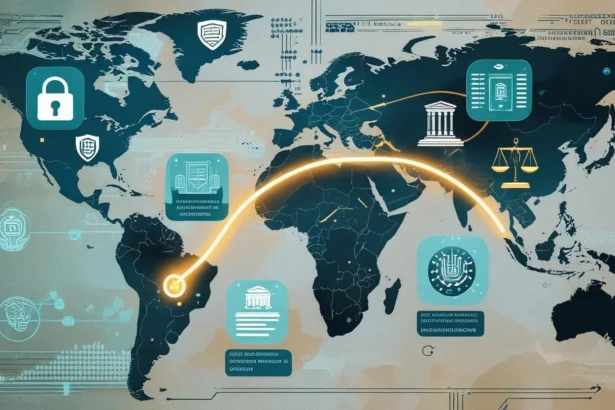Introduction: The Merge of Mind, Machine, and Body
AI in biohacking is transforming the concept of upgrading the human body and mind through technology—a notion no longer confined to science fiction. As the fields of artificial intelligence (AI) and biohacking converge, a new era of human optimization is emerging. This powerful combination is redefining how we monitor, enhance, and even reprogram our biological systems.
Biohacking, at its core, is the practice of using science and technology to improve physical and mental performance. From intermittent fasting and cold plunges to nootropics and implantable chips, biohackers seek to maximize their potential. Now, with AI in the mix, biohacking is becoming smarter, faster, and more personalized than ever before.
This blog explores how AI in biohacking is driving a revolution in health, performance, and longevity—and how it might shape the future of human evolution.
What is AI-Powered Biohacking?
AI-powered biohacking refers to the use of artificial intelligence tools and algorithms to enhance and personalize biohacking practices. These technologies gather data from various sources such as wearables, genetic tests, brain scans, and blood panels, and use machine learning to provide actionable insights.
Instead of generic wellness tips, AI delivers tailored recommendations based on your unique biology. Whether you’re trying to boost focus, increase muscle recovery, or optimize sleep, AI takes biohacking from guesswork to science-backed precision.
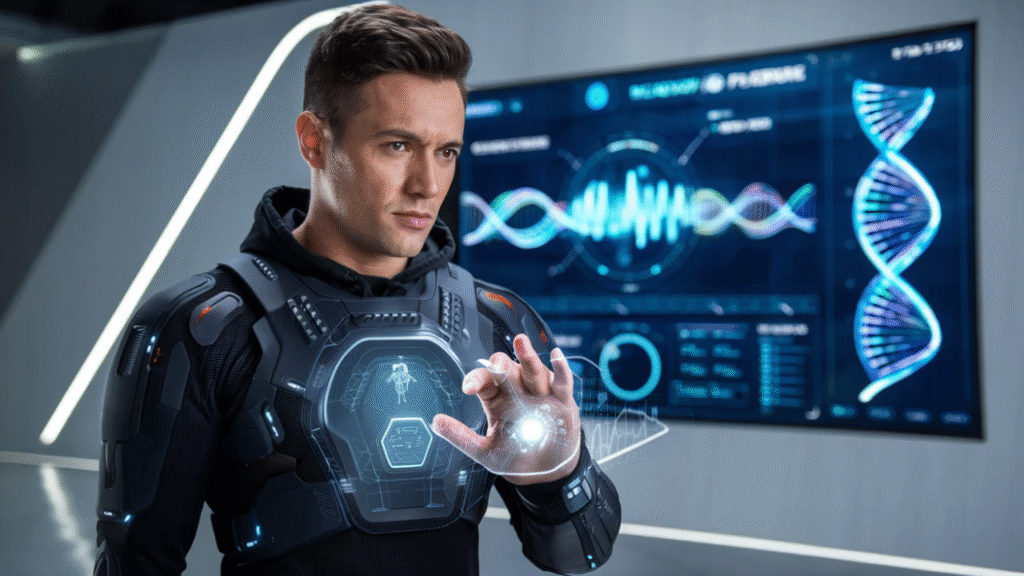
Smart Wearables: Your Personal Biohacker Assistant
One of the most accessible forms of AI in biohacking is smart wearables. Devices like the Oura Ring, WHOOP Strap, and Apple Watch collect real-time data on heart rate, HRV, body temperature, sleep cycles, and more. But the real magic happens in the background, where AI algorithms process this data to uncover patterns and trends.
For instance, based on your nightly sleep quality, AI can adjust your recommended bedtime, suggest meditation techniques, or advise on caffeine intake. Over time, these devices learn your rhythms and make increasingly accurate suggestions to support performance, recovery, and wellness.
Personalized Nutrition and Metabolic Tracking
AI is revolutionizing nutrition by making it deeply personal. No more one-size-fits-all diets—AI-powered platforms like ZOE or InsideTracker analyze your microbiome, blood markers, and lifestyle to create customized meal plans that align with your metabolic type.
By identifying how your body responds to different foods, AI helps biohackers:
- Optimize blood sugar levels
- Manage inflammation
- Improve gut health
- Boost energy and focus
This level of personalization wasn’t possible a decade ago. Now, it's helping people unlock better health through smarter eating.
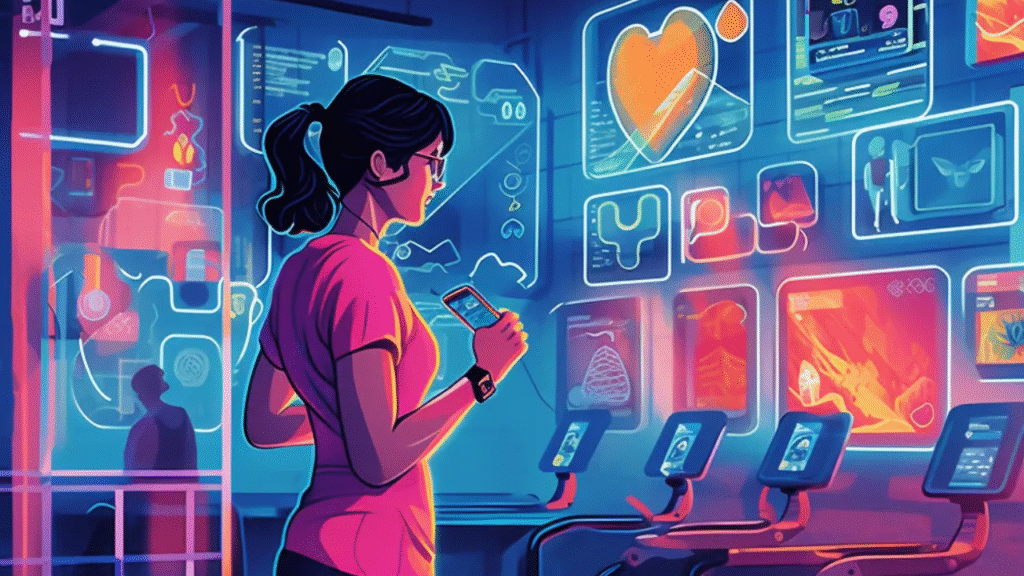
Cognitive Enhancement and Neurofeedback
Cognitive biohacking is gaining momentum, especially with AI-based neurofeedback tools. Devices like Muse, NeuroSky, and Emotiv track brainwave activity in real time. AI interprets these signals to guide users into desired mental states—whether it's focus, relaxation, or creativity.
Some platforms integrate AI with brain stimulation techniques, like transcranial direct current stimulation (tDCS), to modulate brain activity for better learning and memory. Combined with nootropics, meditation, and sleep optimization, AI-enhanced neurohacking is pushing the boundaries of mental performance.
Predictive Health Monitoring
Perhaps one of the most groundbreaking applications of AI in biohacking is predictive health monitoring. Instead of waiting for symptoms to appear, AI can analyze subtle changes in physiological data to detect potential issues before they become serious.
Examples include:
- Detecting arrhythmias before a cardiac event
- Identifying early signs of respiratory illness
- Predicting mood disorders based on behavioral and biometric data
With this proactive approach, biohackers can make timely adjustments to prevent disease and promote longevity.
Longevity and Anti-Aging
AI-driven longevity platforms are helping biohackers extend their healthspan, not just lifespan. Companies like Altos Labs, Gero, and Deep Longevity use AI to analyze biomarkers of aging, such as DNA methylation, telomere length, and protein expression.
Based on this data, users receive personalized interventions that may include:
- Dietary changes
- Supplement protocols
- Exercise routines
- Stress reduction strategies
The goal? Delay biological aging and maintain peak performance well into later decades of life.
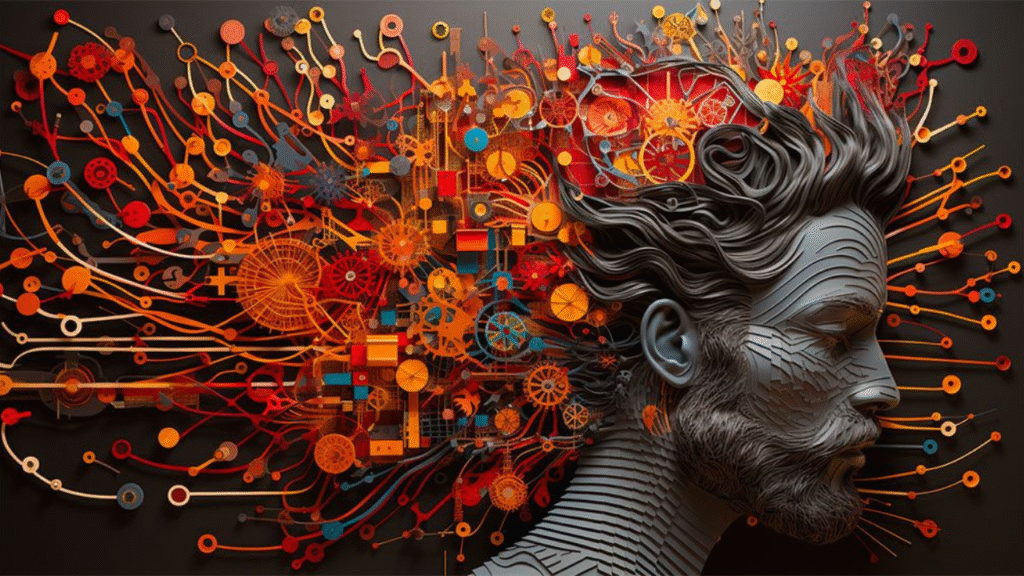
Ethical Considerations and Data Privacy
While the potential of AI in biohacking is enormous, it comes with ethical challenges. One major concern is data privacy. With continuous biometric monitoring and sensitive health data being collected, who controls this information? How is it protected?
Other ethical questions include:
- Is it fair if only the wealthy can afford cognitive or physical enhancements?
- Could AI-based biohacking lead to a new form of human inequality?
- Where should we draw the line between therapy and enhancement?
These issues highlight the need for transparent, inclusive, and well-regulated development in AI-driven health tech.
The Future of Biohacking: AI and Beyond
As AI continues to evolve, so will its role in biohacking. In the near future, we may see:
- AI-powered genetic engineering for personalized traits
- Implantable AI chips that monitor and enhance bodily functions
- Real-time mood tracking and intervention
- Fully automated virtual health coaches
Ultimately, the fusion of AI and human enhancement has the potential to create a world where we live longer, think sharper, and feel better—guided by intelligent machines that understand us better than we understand ourselves.
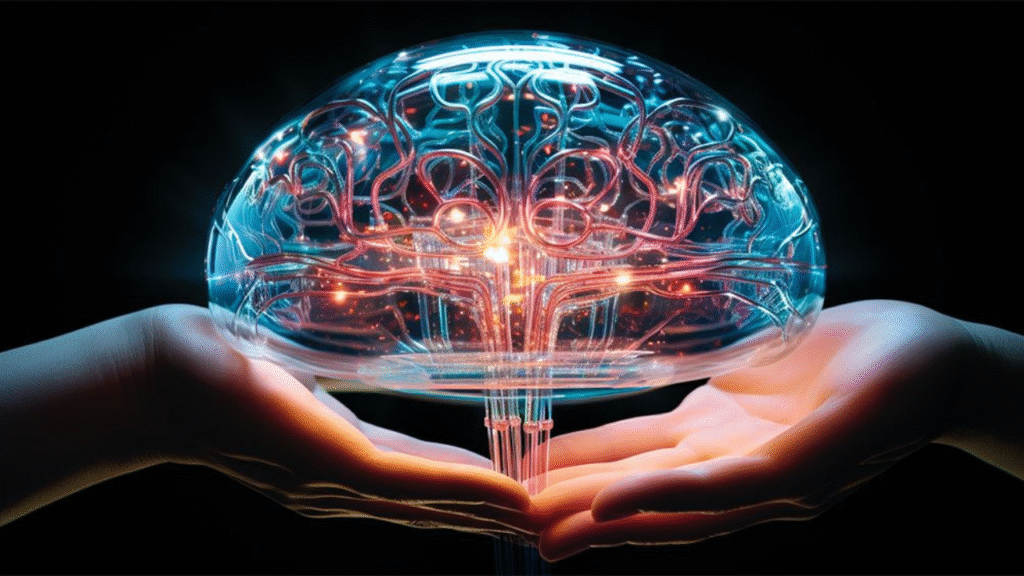
Final Thoughts
The convergence of AI and biohacking is unlocking unprecedented opportunities for self-improvement. What once required labs and experts is now becoming accessible to everyday users who want to take control of their biology.
Through personalized data, smart feedback, and predictive insights, AI in biohacking is shifting health from reactive to proactive, from general to deeply individual. As we move forward, one thing is clear: the future of human optimization is not just biological or digital, it’s both.
Whether you're an elite athlete, a busy professional, or simply someone who wants to feel and function better, AI-powered biohacking offers a smarter path to a better you.



